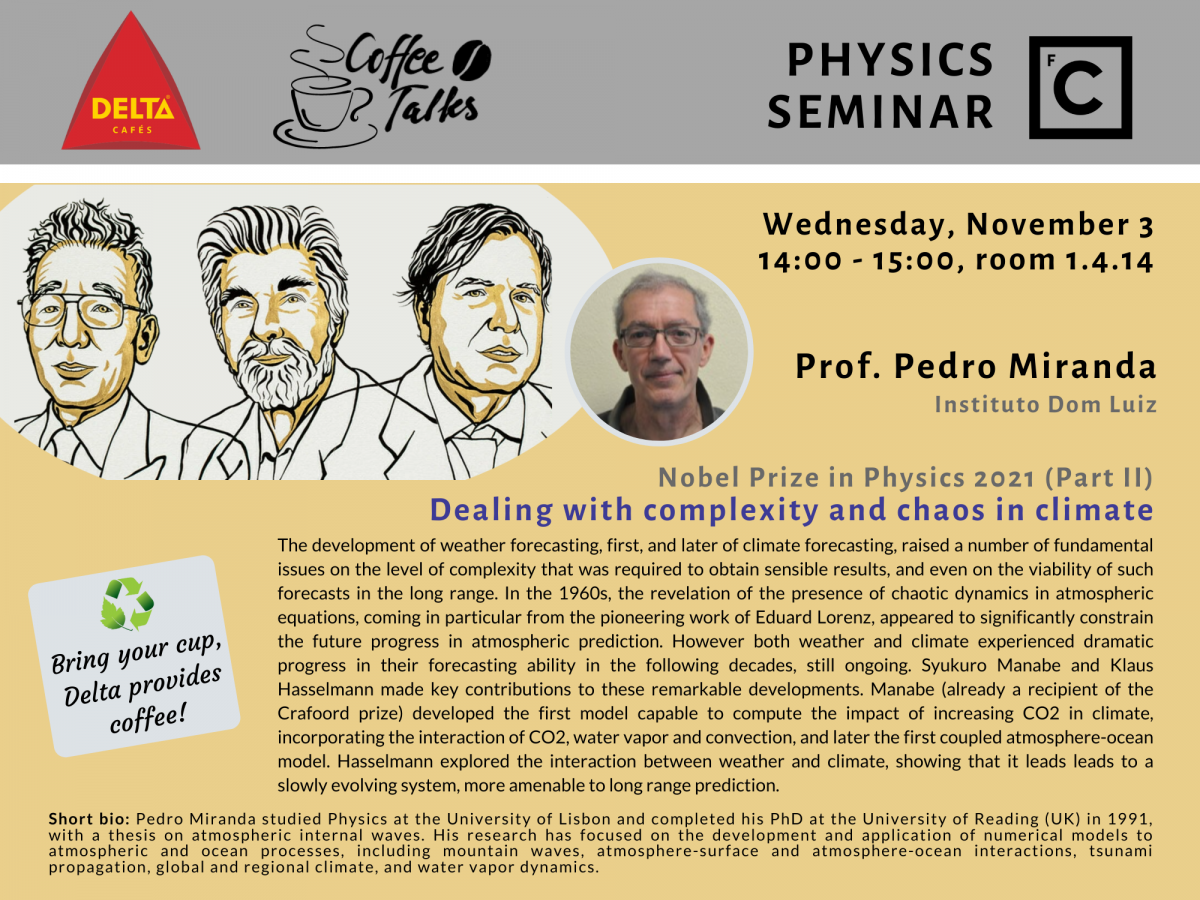Por Pedro Miranda (Instituto Dom Luiz).
The development of weather forecasting, first, and later of climate forecasting, raised a number of fundamental issues on the level of complexity that was required to obtain sensible results, and even on the viability of such forecasts in the long range. In the 1960s, the revelation of the presence of chaotic dynamics in atmospheric equations, coming in particular from the pioneering work of Eduard Lorenz, appeared to significantly constrain the future progress in atmospheric prediction. However both weather and climate experienced dramatic progress in their forecasting ability in the following decades, still ongoing. Syukuro Manabe and Klaus Hasselmann made key contributions to these remarkable developments. Manabe (already a recipient of the Crafoord prize) developed the first model capable to compute the impact of increasing CO2 in climate, incorporating the interaction of CO2, water vapor and convection, and later the first coupled atmosphere-ocean model. Hasselmann explored the interaction between weather and climate, showing that it leads leads to a slowly evolving system, more amenable to long range prediction.
Short Bio: Pedro Miranda studied Physics at the University of Lisbon and completed his PhD at the University of Reading (UK) in 1991, with a thesis on atmospheric internal waves. His research has focused on the development and application of numerical models to atmospheric and ocean processes, including mountain waves, atmosphere-surface and atmosphere-ocean interactions, tsunami propagation, global and regional climate, and water vapor dynamics.













